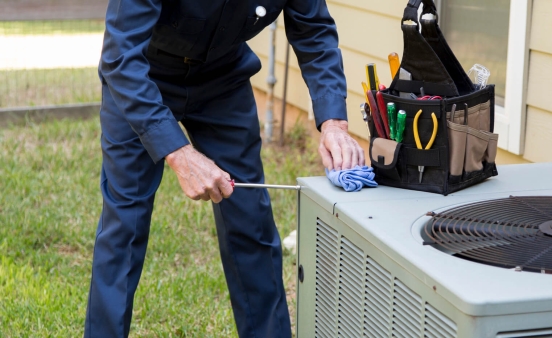Consistent furnace maintenance not only reduces energy costs but also improves home safety and extends the lifespan of heating equipment. Through proper cleaning, preventive care, and integration with smart technologies, homeowners can ensure dependable heating performance during winter while lowering environmental impact and preventing unexpected breakdowns.

The Importance of Furnace Maintenance During Winter
Growing Need for Reliable Heating
As winter approaches, the demand for efficient heating systems increases across American households. A neglected furnace often consumes more energy to achieve the same level of warmth, straining both the system and the utility budget. Reduced efficiency not only raises energy bills but also heightens the risk of mechanical failures during the coldest days of the year.
The Cost of Ignoring Maintenance
Over time, dust, debris, and wear can drastically reduce furnace performance. Clogged filters restrict airflow, and mechanical components must exert more effort to sustain heating levels. These inefficiencies result in higher energy consumption and inflated costs. Regular maintenance mitigates these issues, stabilizing expenses and reducing the risk of expensive emergency repairs.
Prolonging Equipment Longevity
A well-maintained furnace can provide reliable service for over a decade. However, neglect accelerates component wear, leading to premature system failure. Routine servicing helps identify early signs of damage, ensuring smooth operation and consistent comfort. Proper upkeep allows the system to operate efficiently year after year, delaying costly replacements.
Essential Winter Furnace Maintenance Practices
Cleaning Furnaces and Ducts
Ductwork plays a vital role in distributing warm air throughout the home. When dust and allergens accumulate, airflow becomes obstructed, forcing the furnace to overwork. This not only wastes energy but also degrades indoor air quality. Professional duct cleaning helps restore proper airflow, enhances energy efficiency, and promotes a healthier living space.
Replacing Air Filters
Filters are essential for maintaining both air quality and furnace performance. When they become clogged, airflow weakens and energy consumption spikes. A clean filter reduces strain on components and improves indoor air purity, particularly in households with pets, smokers, or allergy sufferers. Changing filters regularly is one of the easiest and most cost-effective maintenance steps.
Improving Insulation and Sealing
Even the most efficient furnace cannot compensate for heat loss caused by poor insulation. Drafts around doors, windows, and attics allow warmth to escape, causing the system to run longer. Enhancing insulation and sealing gaps lowers heating demand, improves indoor comfort, and optimizes furnace efficiency.
Integrating Technology for Smarter Heating
Smart thermostats and connected HVAC systems have revolutionized home heating. These devices learn usage patterns, adjust temperatures automatically, and send alerts for maintenance or energy anomalies. The U.S. Department of Energy estimates that such systems can cut heating expenses by up to 10% annually.
Zoned heating systems, which allow separate temperature control for different rooms, further enhance efficiency. By heating only occupied spaces, homeowners reduce unnecessary energy use. Real-time energy tracking through mobile apps also encourages better consumption habits, maximizing both comfort and savings.
Supplemental Heating Options
Depending solely on a central furnace can be costly in larger or drafty homes. Supplemental heating sources offer flexible, energy-efficient solutions.
-
Portable space heaters provide focused warmth but must be used carefully to prevent fire hazards.
-
Gas fireplaces add aesthetic value and supplemental heat without significant energy waste.
-
Heat pumps serve as eco-friendly alternatives in mild climates, minimizing furnace load during moderate winter days.
-
Upgrading older gravity furnaces with modern exchangers improves efficiency without complete system replacement.
Preventive Maintenance for Homes and Businesses
Preventive maintenance is essential for keeping heating systems safe and efficient. While homeowners can replace filters and clear vents, professional inspections detect hidden risks such as gas leaks, faulty wiring, or worn heat exchangers.
Commercial and industrial furnaces, due to higher usage demands, require specialized inspections and routine calibration. Systems such as boilers, radiant heaters, and combined heat-and-power units each have unique maintenance needs. Proactive servicing reduces downtime, enhances safety compliance, and prevents costly failures in large-scale operations.
Home Safety During Extreme Weather
Severe winter storms can disrupt power and heating, posing serious safety risks. Preparedness is key.
-
Emergency kits should include flashlights, blankets, and non-perishable food.
-
Backup generators ensure furnaces continue operating during outages.
-
Carbon monoxide detectors are vital for preventing poisoning from malfunctioning furnaces.
-
Proper insulation helps retain heat longer during power interruptions.
These precautions safeguard households when external conditions threaten comfort and safety.
Energy Savings and Environmental Benefits
Regular furnace maintenance benefits both household finances and the environment. Efficient furnaces consume less fuel, reducing monthly bills and carbon emissions. Even modest efficiency gains can save hundreds of dollars annually.
Environmentally, every improvement matters. Residential heating contributes a large share of carbon output. Maintaining natural gas or electric systems in top condition minimizes emissions, while smart thermostats and clean filters enhance sustainability. Combined with proper insulation and energy-conscious practices, these steps support long-term conservation goals.
References:
https://www.carrier.com/residential/en/us/products/furnaces/furnace-service/furnace-maintenance/
https://www.thisoldhouse.com/heating-cooling/21016379/furnace-maintenance
https://www.trane.com/residential/en/resources/maintenance-tips/gas-furnaces/
